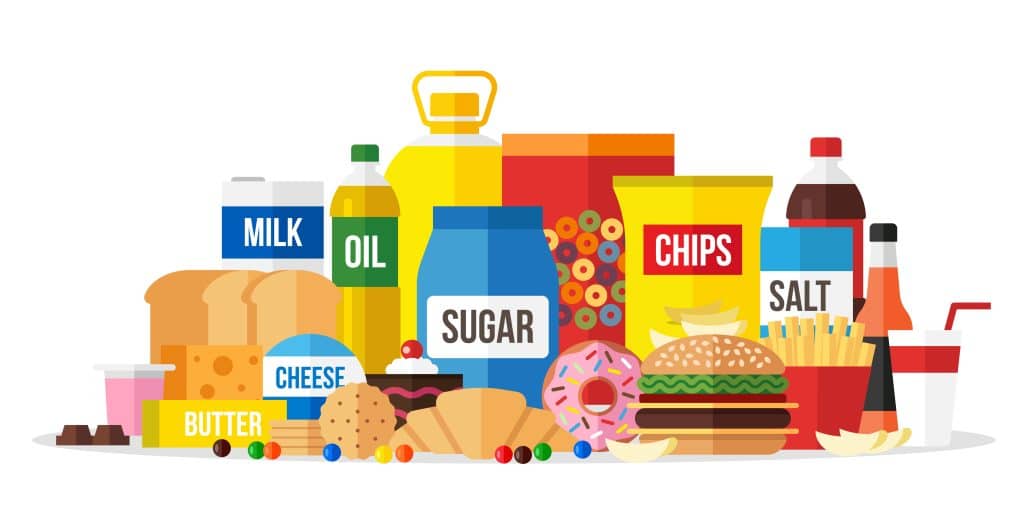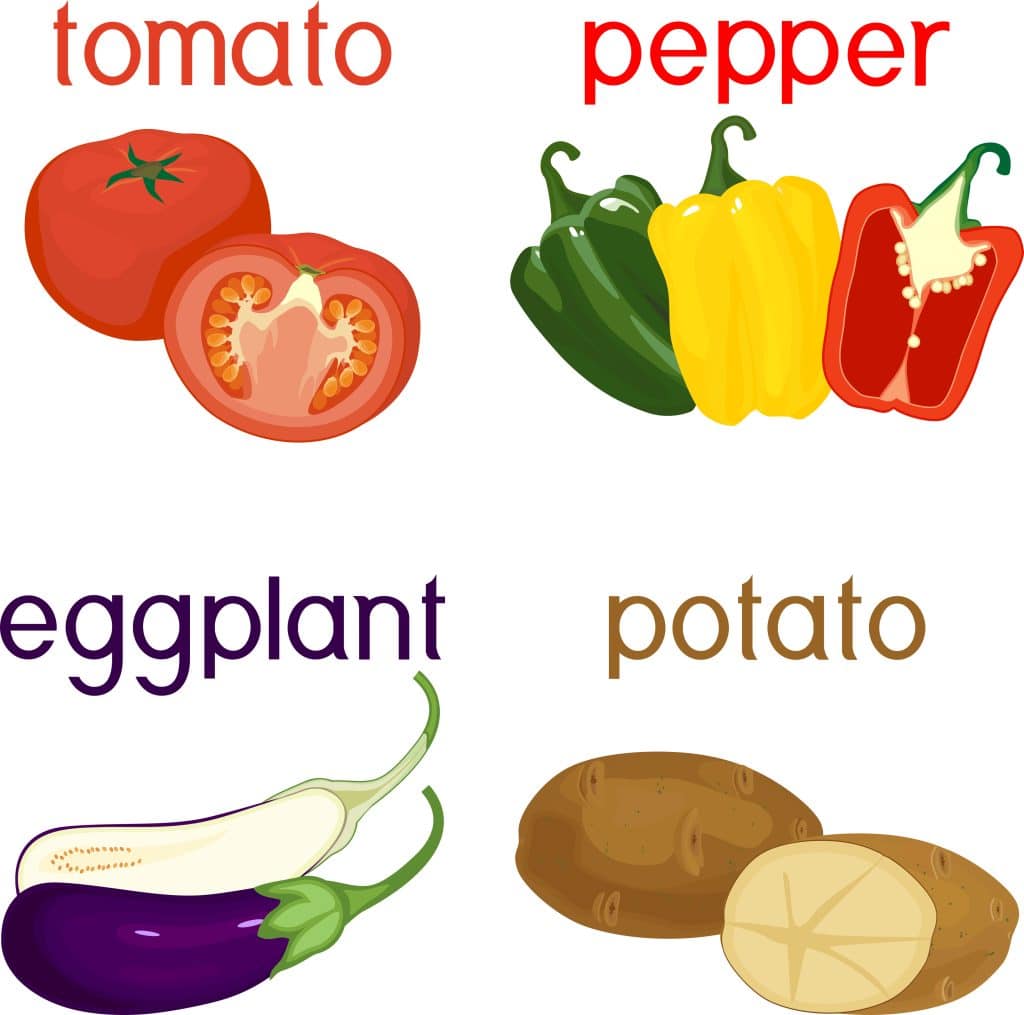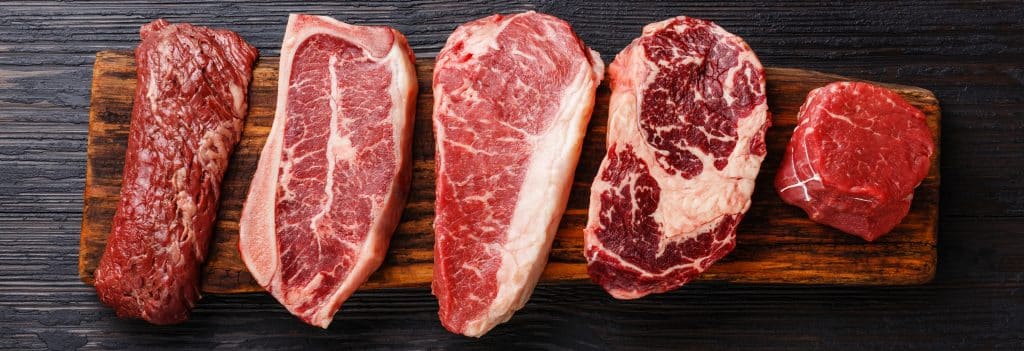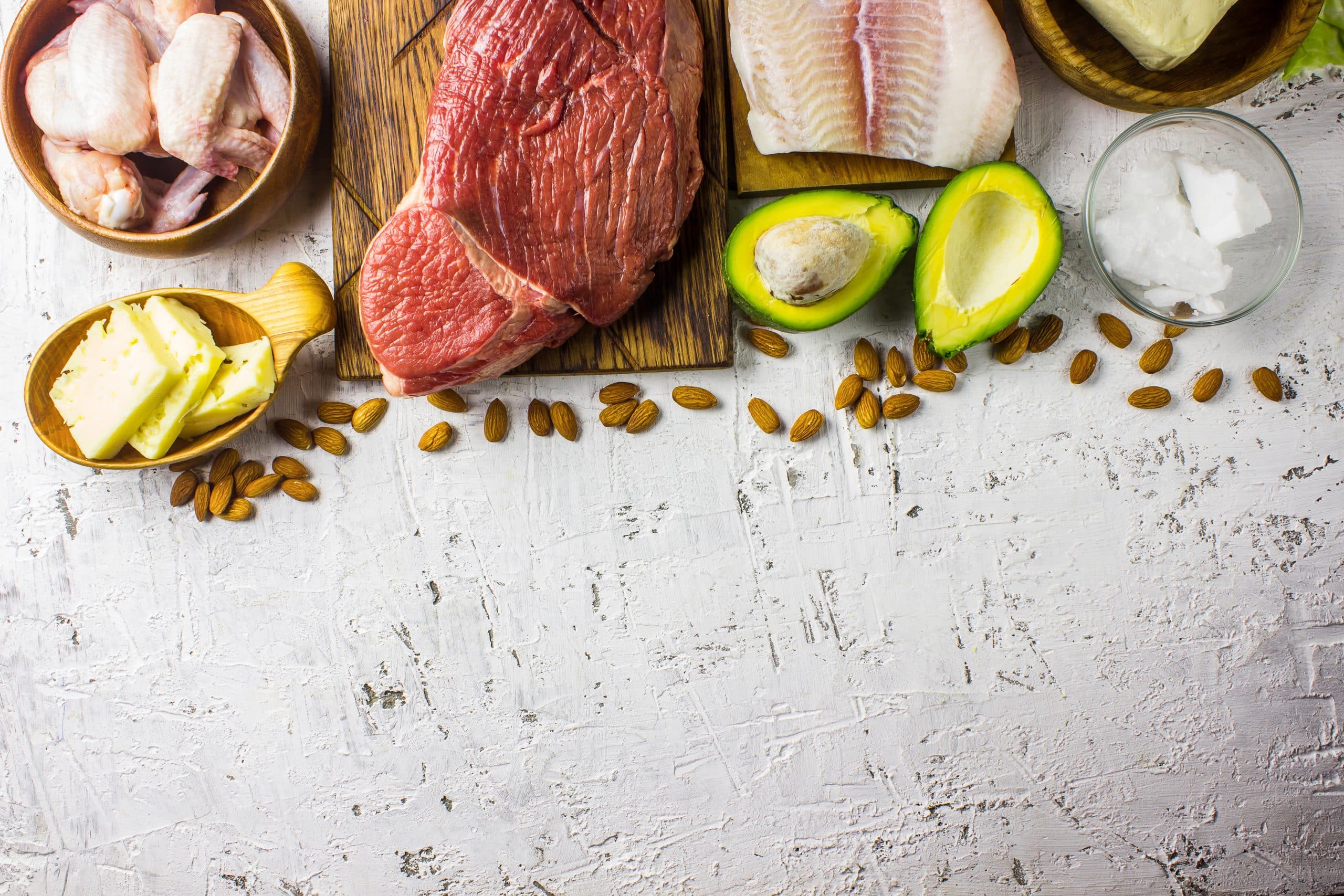Is Your Diet Causing Autoimmune Symptoms – Find Out With An Elimination Diet
Individuals with autoimmune conditions have to consider the question, is my diet causing autoimmune symptoms? Although there are many factors behind autoimmune conditions, diet is one of the easiest to control so it makes sense to modify it accordingly. The autoimmune conditions with a strong link to diet include rheumatoid arthritis, lupus, celiac disease, and multiple sclerosis.1 2 3 4
The best way to find whether or not your diet is causing autoimmune symptoms is through an elimination diet. An elimination diet consists of removing certain foods from your daily routine, then slowly reintroducing them one at a time to track how it affects your body’s responses. By monitoring your body’s reactions to certain foods, you can better understand how to identify and avoid anything that causes an adverse response.
Is Your Diet Causing Autoimmune Symptoms – Common Foods That Trigger Autoimmune Conditions
It can be difficult to identify which foods trigger autoimmune symptoms. To determine if your diet is causing autoimmune symptoms, avoid eating foods that are linked to autoimmune conditions. Some of the most common dietary culprits of autoimmune conditions include grains, processed meats, sugary snacks and sweets, processed soy products, milk products, legumes, eggs, and nightshades.
Is Your Diet Causing Autoimmune Symptoms – Processed Foods And Refined Sugars
Processed foods and refined sugars are among the most frequent dietary causes of autoimmune symptoms. It is essential for those with autoimmune conditions to pay close attention to what they are eating and limit their intake of processed foods and refined sugars.5 6

Is Your Diet Causing Autoimmune Symptoms – Soy
Soy is found in many processed foods and is one of the most common food allergens. It can cause an immune reaction that increases inflammation which leads to autoimmune symptoms. Symptoms of soy allergy may include skin rashes, hives, difficulty breathing, or gastrointestinal problems such as nausea, vomiting, or diarrhea.7 8
Foods that contain soy include: tofu, tempeh, edamame, miso soup, soy sauce, and processed foods that contain soybean oil or other forms of added soy.
Is Your Diet Causing Autoimmune Symptoms – High Fructose Corn Syrup
One particularly dangerous ingredient that could be causing unwanted autoimmune reactions is high fructose corn syrup (HFCS). High fructose corn syrup is an artificial sweetener derived from processed cornstarch, and can often be found in many processed foods. HFCS is used because of its sweetness and low cost, but it can come with a number of health risks.
Studies have linked high fructose corn syrup to increases in inflammatory markers in the body, which are associated with autoimmune diseases like rheumatoid arthritis and lupus. A diet high in processed food containing HFCS can cause the body’s own immune system to attack itself, leading to unwanted autoimmune symptoms.9
Is Your Diet Causing Autoimmune Symptoms – Unhealthy Fats
Unhealthy fats such as trans fats, hydrogenated oils, and an excess of omega-6 fatty acids can aggravate autoimmune symptoms and should be avoided. These fats can trigger inflammation and have been linked to autoimmune conditions. When it comes to fats, choose healthy sources like extra-virgin olive oil, avocado oil, coconut oil, grass-fed meat, grass-fed butter, ghee, nuts, seeds and fatty fish like wild caught salmon or sardines for their omega-3s.10

Is Your Diet Causing Autoimmune Symptoms – Lectins
Many common foods contain lectins, which can trigger inflammation and worsen symptoms in those with autoimmune diseases. Lectins are proteins found in many plants, including wheat, beans, and nightshades. They are known to cause inflammation and damage the intestinal lining. Lectins can also bind to certain body tissues, leading to tissue damage that contributes to autoimmune disorder symptoms. By cutting out foods high in lectin content, you can reduce lectin-induced inflammation and ease autoimmune disorder symptoms.11 12
Is Your Diet Causing Autoimmune Symptoms – Grains
Grains can aggravate autoimmune symptoms. Common grain foods like wheat bread, semolina pasta, and quinoa contain lectins which can cause inflammation in some people. Gluten is contained in many grains like wheat, barley, rye and spelt and has been linked to the cause of many autoimmune symptoms. Studies have found that the proteins contained in gluten can cause an immune response, which can lead to a number of uncomfortable side effects such as inflammation and digestive issues.13
Read more about Celiac Disease.
Is Your Diet Causing Autoimmune Symptoms – Dairy Products
In certain sensitive individuals dairy products like milk and cheese may also contribute to flare-ups in autoimmune symptoms due to casein proteins and lactose. Dairy animals produce lactose, which can cause digestive upset in some people, as well as proteins that can trigger an immune response in those who are sensitive.
When dairy proteins are consumed by those with an autoimmune disorder, they can cause a cascade of inflammatory reactions. This inflammation is caused when the immune system mistakes the dairy proteins for foreign invaders and launches an attack on them, resulting in an inflammatory response that can affect several systems in the body.14
Is Your Diet Causing Autoimmune Symptoms – Eggs
Some people with autoimmune disorders may find that consuming eggs triggers inflammation or other autoimmune symptoms. This is because eggs contain specific proteins and other compounds that can trigger an immune reaction in people with sensitivity.
Eggs, especially the whites, contain a host of proteins and other components that can contribute to an autoimmune reaction. These components include prolamins which are proteins found in wheat and other grains but also found in egg whites, ovomucoid which is found in egg white, as well as cysteine sulfoxide and lysinoalanine.15
Is Your Diet Causing Autoimmune Symptoms – Nightshades
Research has found that foods from the nightshade family may be linked to autoimmune symptoms. These include potatoes, tomatoes, peppers, eggplants and some spices like cayenne and paprika. While many people are able to tolerate them without issue, a subset of individuals with autoimmunity find these foods difficult to digest or can experience an inflammatory response.
The primary mechanism for this appears to be a group of plant compounds called alkaloids, which are found in many nightshades. Alkaloids can affect the way our cells absorb nutrients and interfere with healthy digestion, leading to inflammatory symptoms including joint pain.16 17 18

Is Your Diet Causing Autoimmune Symptoms – Legumes
Legumes can be a great source of dietary nutrition, but they can also trigger the development of autoimmune symptoms. In some cases, legumes such as lentils and chickpeas can cause an inflammatory response in the body. This is due to the fact that legumes are high in lectins.19
Is Your Diet Causing Autoimmune Symptoms – Vegetable Oils
Consumption of vegetable oils are linked with autoimmune conditions. Vegetable oils contain high levels of omega-6 fatty acids, which are known to contribute to inflammation in the body. Excess consumption of these omega-6 fats can quickly skew the ideal ratio between omega-6 fatty acids and omega-3 fatty acids, resulting in higher levels of inflammation and worsening autoimmune symptoms.20
Utilizing An Elimination Diet To Improve Autoimmune Conditions
When it comes to an elimination diet for autoimmune conditions, the goal should be to identify any foods that may be causing inflammation in your body. One of the best elimination diets is a strict form of the carnivore diet where only red meat, salt, and water are consumed for 1 to 3 months.
Utilizing An Elimination Diet To Improve Autoimmune Conditions – Carnivore Diet
The red meat-only carnivore diet is an elimination diet that is gaining traction as an effective tool for managing autoimmune conditions. By eliminating all plant-based foods and most animal-based foods from your diet, the red meat-only Carnivore Diet eliminates potential allergens or other compounds that may be contributing to autoimmune conditions.
After consuming only red meat over a period of months, you will have an answer to the question, is your diet causing autoimmune symptoms? While many people continue eating this restrictive diet, others start adding foods they enjoy back in one by one to determine which foods are specifically responsible for causing autoimmune symptoms.

Is Your Diet Causing Autoimmune Symptoms – Consider Water Fasting
Water fasting is an effective way to reduce or even eliminate symptoms related to autoimmune diseases. This is because, in its most basic form, a water fast detoxifies the body and helps to reset your immune system. When done correctly, water fasting allows the body to repair and regenerate through autophagy and stem cell synthesis.
When you fast, your body starts to produce substances called ketones. These ketones help reduce inflammation in the body and encourage healing. In addition, when you fast for extended periods of time (3 to 5 days), your body goes into a state of autophagy. Autophagy is a process by which cells break down their own components in order to repair themselves and create energy. This can be incredibly helpful for those suffering from autoimmune diseases as it helps reduce systemic inflammation and encourages the body to heal itself.21 22
Read more about how water fasting can improve autoimmune conditions.
After performing a water fast, slowly start eating again by following an elimination diet like my Cellular Healing Diet to ensure that diet-related symptoms of autoimmune conditions don’t return.
Utilizing An Elimination Diet To Improve Autoimmune Conditions – Cellular Healing Diet
Consuming only meat for a period of months isn’t for everybody and isn’t always necessary so consider other healthy maintenance diets that are less restrictive like my Cellular Healing Diet. This diet restricts sugar, grain products, vegetable oils, and other foods linked with autoimmune conditions. The Cellular Healing Diet focuses on consuming high fat, moderate protein, and low carbohydrate foods like grass-fed meat, fatty fish, healthy fats, non-starchy vegetables, and leafy greens.
Read all about my Cellular Healing Diet.

References
1 Gioia C, Lucchino B, Tarsitano MG, Iannuccelli C, Di Franco M. Dietary Habits and Nutrition in Rheumatoid Arthritis: Can Diet Influence Disease Development and Clinical Manifestations? Nutrients. 2020 May 18;12(5):1456. doi: 10.3390/nu12051456. PMID: 32443535; PMCID: PMC7284442.
2 Islam MA, Khandker SS, Kotyla PJ, Hassan R. Immunomodulatory Effects of Diet and Nutrients in Systemic Lupus Erythematosus (SLE): A Systematic Review. Front Immunol. 2020 Jul 22;11:1477. doi: 10.3389/fimmu.2020.01477. PMID: 32793202; PMCID: PMC7387408.
3 Lundin KE, Wijmenga C. Coeliac disease and autoimmune disease-genetic overlap and screening. Nat Rev Gastroenterol Hepatol. 2015 Sep;12(9):507-15. doi: 10.1038/nrgastro.2015.136. Epub 2015 Aug 25. PMID: 26303674.
4 Stoiloudis P, Kesidou E, Bakirtzis C, Sintila SA, Konstantinidou N, Boziki M, Grigoriadis N. The Role of Diet and Interventions on Multiple Sclerosis: A Review. Nutrients. 2022 Mar 9;14(6):1150. doi: 10.3390/nu14061150. PMID: 35334810; PMCID: PMC8955724.
5 Aaron Lerner, Torsten Matthias. Changes in intestinal tight junction permeability associated with industrial food additives explain the rising incidence of autoimmune disease, Autoimmunity Reviews, Volume 14, Issue 6, 2015, Pages 479-489, ISSN 1568-9972, https://doi.org/10.1016/j.autrev.2015.01.009.
6 Ma X, Nan F, Liang H, Shu P, Fan X, Song X, Hou Y, Zhang D. Excessive intake of sugar: An accomplice of inflammation. Front Immunol. 2022 Aug 31;13:988481. doi: 10.3389/fimmu.2022.988481. PMID: 36119103; PMCID: PMC9471313.
7 Tezuka H, Imai S. Immunomodulatory Effects of Soybeans and Processed Soy Food Compounds. Recent Pat Food Nutr Agric. 2015;7(2):92-9. doi: 10.2174/2212798407666150629123957. PMID: 26118769.
8 Fort P, Moses N, Fasano M, Goldberg T, Lifshitz F. Breast and soy-formula feedings in early infancy and the prevalence of autoimmune thyroid disease in children. J Am Coll Nutr. 1990 Apr;9(2):164-7. doi: 10.1080/07315724.1990.10720366. PMID: 2338464.
9 Febbraio MA, Karin M. “Sweet death”: Fructose as a metabolic toxin that targets the gut-liver axis. Cell Metab. 2021 Dec 7;33(12):2316-2328. doi: 10.1016/j.cmet.2021.09.004. Epub 2021 Oct 6. PMID: 34619076; PMCID: PMC8665123.
10 Fernandes G. Dietary lipids and risk of autoimmune disease. Clin Immunol Immunopathol. 1994 Aug;72(2):193-7. doi: 10.1006/clin.1994.1129. PMID: 8050192.
11 Vojdani A. Lectins, agglutinins, and their roles in autoimmune reactivities. Altern Ther Health Med. 2015;21 Suppl 1:46-51. PMID: 25599185.
12 Brown GD, Willment JA, Whitehead L. C-type lectins in immunity and homeostasis. Nat Rev Immunol. 2018 Jun;18(6):374-389. doi: 10.1038/s41577-018-0004-8. PMID: 29581532.
13 de Punder K, Pruimboom L. The dietary intake of wheat and other cereal grains and their role in inflammation. Nutrients. 2013 Mar 12;5(3):771-87. doi: 10.3390/nu5030771. PMID: 23482055; PMCID: PMC3705319.
14 Bordoni A, Danesi F, Dardevet D, Dupont D, Fernandez AS, Gille D, Nunes Dos Santos C, Pinto P, Re R, Rémond D, Shahar DR, Vergères G. Dairy products and inflammation: A review of the clinical evidence. Crit Rev Food Sci Nutr. 2017 Aug 13;57(12):2497-2525. doi: 10.1080/10408398.2014.967385. PMID: 26287637.
15 Andersen CJ. Bioactive Egg Components and Inflammation. Nutrients. 2015 Sep 16;7(9):7889-913. doi: 10.3390/nu7095372. PMID: 26389951; PMCID: PMC4586567.
16 Patel B, Schutte R, Sporns P, Doyle J, Jewel L, Fedorak RN. Potato glycoalkaloids adversely affect intestinal permeability and aggravate inflammatory bowel disease. Inflamm Bowel Dis. 2002 Sep;8(5):340-6. doi: 10.1097/00054725-200209000-00005. PMID: 12479649.
17 Iablokov V, Sydora BC, Foshaug R, Meddings J, Driedger D, Churchill T, Fedorak RN. Naturally occurring glycoalkaloids in potatoes aggravate intestinal inflammation in two mouse models of inflammatory bowel disease. Dig Dis Sci. 2010 Nov;55(11):3078-85. doi: 10.1007/s10620-010-1158-9. Epub 2010 Mar 3. PMID: 20198430.
18 Carreno-Gómez B, Woodley JF, Florence AT. Studies on the uptake of tomato lectin nanoparticles in everted gut sacs. Int J Pharm. 1999 Jun 10;183(1):7-11. doi: 10.1016/s0378-5173(99)00050-2. PMID: 10361144.
19 Panacer K, Whorwell PJ. Dietary Lectin exclusion: The next big food trend? World J Gastroenterol. 2019 Jun 28;25(24):2973-2976. doi: 10.3748/wjg.v25.i24.2973. PMID: 31293334; PMCID: PMC6603809.
20 Esmaillzadeh A, Azadbakht L. Home use of vegetable oils, markers of systemic inflammation, and endothelial dysfunction among women. Am J Clin Nutr. 2008 Oct;88(4):913-21. doi: 10.1093/ajcn/88.4.913. PMID: 18842776.
21 Buono R, Longo VD. When Fasting Gets Tough, the Tough Immune Cells Get Going-or Die. Cell. 2019 Aug 22;178(5):1038-1040. doi: 10.1016/j.cell.2019.07.052. PMID: 31442398; PMCID: PMC7474734.
22 Huang AW, Wei M, Caputo S, Wilson ML, Antoun J, Hsu WC. An Intermittent Fasting Mimicking Nutrition Bar Extends Physiologic Ketosis in Time Restricted Eating: A Randomized, Controlled, Parallel-Arm Study. Nutrients. 2021 Apr 30;13(5):1523. doi: 10.3390/nu13051523. PMID: 33946428; PMCID: PMC8147148.




